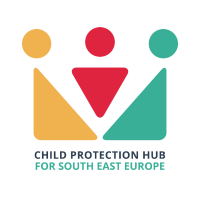Physical Abuse
What is the first thing you think of when you hear about physical abuse? Have you ever experienced any physical abuse? Do you have any friends/relatives that live in an environment where they are physically beaten?
Physical abuse and punishment is defined as inflicting physical harm towards an individual. In the case of children, this includes deliberate, frequent and aggressive actions by parents and other adults towards children, such as: hitting, slapping, throwing them to the floor or down the stairs, tying them to an object such as a radiator or closet, food deprivation, confinement in a basement or attic, attempts of drowning etc.
Physical punishment is not an effective form of punishment or discipline. Within the person inflicting the harm, it often causes feelings of anger and rage which further reciprocates even more negative emotions. Furthermore, it sends the message to children that such actions are an acceptable way of resolving conflicts and disagreements with others.
As opposed to physical punishment as a form of discipline, a more proper and effective method is for parents to encourage and reward children for appropriate behaviour, and by doing so reinforcing and directing them towards correct decisions and actions.
Sometimes parents will use physical punishment as an educational measure or method of discipline for inappropriate behaviour in children. They are often not trying to actually hurt the child, but they simply do not know any better or are unaware of how else to deal with the situation. A common reason for such behaviour is that their parents raised them and disciplined them in such a way, and so they think it is appropriate as well. Justification for these forms of unacceptable punishment often stem from common proverbs like “Spare the rod, spoil the child”, or “I was raised the same way and I turned out fine…”
It is important to realize that physical punishment is not acceptable and it is not legal, and that there is a big difference between physical abuse and punishment on the one hand and discipline on the other. They are not one and the same thing.
For example, when a child does something wrong (taking someone’s toy, spills juice, or gets a bad score) their actions should be corrected and disciplined.
It is alright for parents to explain what the child did wrong and to let them know of certain rules and boundaries which they may not like at first. It is important to explain what was done wrong, what is the right way of doing things, and why.
NOT OK: What is not ok is for parents to strike their children to teach them a lesson in the attempt of trying to prevent and correct inappropriate behaviour.
Physical abuse and punishment negatively affects mental, emotional, and physical development and can have a variety of effects. If any of these things happen to you, or you know of someone to whom these are happening to, it is important that you turn to someone for help. Of course it is often easier said than done, some children think they are too small and/or young to do this. However, it is important to gather the strength and courage needed and seek the help of an adult that you believe and know will help you, so as to prevent any further abuse and neglect.
If you do not know who to talk to or who to trust with your problems, secrets, and feelings, contact Brave Phone which has a toll free number 116 111. The Brave Phone helpline is available Mondays to Fridays from 9:00 AM to 20:00 PM. For additional help you can also contact the Hrabri Telefon e-mail hrabrisa@hrabritelefon.hr at any time or via chat which is available Mondays to Fridays from 17:00 PM to 20:00 PM.
If you want to learn more about what constitutes physical violence towards children, we recommend you watch the cartoon below.
Brave Phone’s brochure “Recognizing Abuse” in its digital format can be accessed here.
Emotional Abuse
Do you know what people are talking about when they say ˝emotional abuse˝? Perhaps you think it hasn’t happened to you, or that it’s not present in your social environment. Emotional abuse refers to cases in which parents and other adults are absent or not involved in the lives of their children, and in which do not show them the necessary love or care. It is normally expressed through threats, ridicule, shouting, humiliation, as well as rejection of a child’s need for the love and care necessary for their psychological development. Emotional abuse is recognizable in statements such as “Shut up”, “I have nothing because of you”, “You’re stupid, you always try to spoil things”, “It would have been better if you were never born”, “Get out of the room, I don’t want to see you”.
Emotional abuse affects children very deeply. Children need love, encouragement and praise from their parents in order to feel happy, and so that they can eventually grow into secure and self-confident adults. Parents are blessed with being able to have the closest and most trusting relationships with their children. However, they also have the power to inflict the most damage towards them.
Sometimes you´ll come back from school with a bad mark that you will need to tell your parents about. It´s never easy to tell parents about a bad grade, especially when you know your parents won´t like it, will react negatively, and you´ll have to bear the consequences of your parents´ reaction. In these types of situations it is important to know that there are certain reactions and behaviours that are acceptable, and those which are not.
ACCEPTABLE: It is acceptable and encouraged for a parent to provide space and extra help with learning in the area you´re finding difficult. Not allowing you to play video games or watch television until your homework and studying is done is likewise acceptable.
NOT ACCEPTABLE: It is not acceptable for your parents to yell, belittle or insult you, or to use derogatory names such as ‘idiot’ or ‘monkey’. It is unacceptable to prevent you from leaving your room, or t stop you from talking with family members and friends.
It is important to remember that children have a right to be loved, not blamed for their actions. Everyone has the right to freely express their views, wishes, and feelings.
If you do not know with whom to speak with, or who to trust with your problems, secrets, and feelings, contact Brave Phone which has a toll free number 116 111. The Brave Phone helpline is available Mondays to Fridays from 9:00 AM to 20:00 PM. For additional help you can also contact the Hrabri Telefon e-mail hrabrisa@hrabritelefon.hr at any time or via chat which is available Mondays to Fridays from 17:00 PM to 20:00 PM.
Sexual Abuse
Sexual abuse happens to both girls and boys. It is committed not just by strangers but also by adults which children know and trust. This includes parents and relatives, neighbors, educators, teachers, coaches, etc. Sexual abuse is not just limited to rape: it is any occasion in which another person takes advantage of a child in a sexual way. This can be a situation in which adults touch a child inappropriately, in a way that causes them pain or discomfort For example, asking to touch their private parts or asking the child to touch theirs, as well as asking that it will be their little secret. Whether it´s gentle or painful, naked or clothed, it´s all sexual abuse.
It is important to know how to recognize when sexual abuse occurs and being able to differentiate between when touching is okay and when it is not.
IT IS OK when a child has asked a doctor for help to look over something. When the doctor needs to check something, the child may have to take off a certain piece of clothing.
IT IS NOT OK when an adult asks a child to take their clothes off and begins to touch them or wishes to film or draw them, or does anything else that makes the child uncomfortable.
Should any instance of sexual abuse happen, even if you know and love the person who has committed the abuse, you should report them immediately to someone you trust. Children have the right to seek the protection of adults, and are never responsible for any abuse that is directed towards them. Child abuse is never the child’s fault, and children should not be afraid of causing any problems by reporting such incidents.
If you do not know with whom to speak with, or who to trust with your problems, secrets, and feelings, contact Brave Phone which has a toll free number 116 111. The Brave Phone helpline is available Mondays to Fridays from 9:00 AM to 20:00 PM. For additional help you can also contact the Hrabri Telefon e-mail hrabrisa@hrabritelefon.hr at any time or via chat which is available Mondays to Fridays from 17:00 PM to 20:00 PM.
If you would like more information on what sexual abuse and violence might look like, we recommend watching the cartoon below.
Brave Phone’s brochure “How to Recognize Sexual Abuse” in its digital format can be accessed here.
Neglect
We’ve talked about many different forms of abuse so far, but neglect can be just as harmful towards a child’s growth and development. When we speak of neglect we mean cases in which parents don´t provide their child with sufficient care, for example leaving them at home alone, not feeding them, and not taking them to the doctor when they’re sick. Neglect takes place when a child’s basic needs, such as proper hygiene and sleep, are not looked after, as well as failure to send them to school and so on.
It is considered okay for parents to leave their children with their grandparents or other adults they trust, while they go to work, shopping, or perform other duties and responsibilities that adults have.
It is NOT OK for parents to leave their children at home alone for days at a time without food, and proper and supervision from a trusted adult.
Children are reliant on adults because they provide protection and care for them. They depend on their parents to make them happy and provide them with what they need to stay healthy and grow. Neglected children, however, learn to hide their emotions, and feel sad, hurt, and rejected. They come to believe that their feelings and needs are not important and they do not trust others. These problems persist into adulthood and they face difficulties in letting themselves become intimate and develop emotional ties.
If you do not know with whom to speak with, or who to trust with your problems, secrets, and feelings, contact Brave Phone which has a toll free number 116 111. The Brave Phone helpline is available Mondays to Fridays from 9:00 AM to 20:00 PM. For additional help you can also contact the Hrabri Telefon e-mail hrabrisa@hrabritelefon.hr at any time or via chat which is available Mondays to Fridays from 17:00 PM to 20:00 PM.
If you would like more information on what neglect towards children might look like, we recommend watching the cartoon below.







